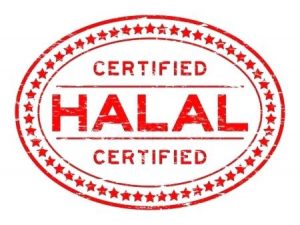 In my discussions on halal reputation management with brand owners, I often find a higher concern on halal reputation management with manufacturers of consumer products as compared to manufacturers of ingredients (to consumer product manufacturers).
In my discussions on halal reputation management with brand owners, I often find a higher concern on halal reputation management with manufacturers of consumer products as compared to manufacturers of ingredients (to consumer product manufacturers).
The argument I often hear from ingredient manufacturers is that in case of a halal issue of a consumer product, the consumer brand owner is exposed, not the ingredient producer. Is that a correct assumption that halal reputation management is not important for ingredient manufacturers?
Why halal reputation management?
Halal is not static but in fact dynamic, moving away from a product approach, towards a halal supply chain and halal value chain. This evolution of halal comes together with more stringent halal regulations by leading Muslim (majority) countries for manufacturers but also with new halal standards like Malaysia’s halal supply chain management system standard (MS 2400:2019). Also, under the OIC/SMIIC, the international halal standard development agencies, a halal supply chain management standard (OIC/SMIIC-17: 2020) was introduced in the year 2020. Leading large and MNC halal certified consumer brand owners are reviewing their supply chain network and supply chain partners, to ensure that their suppliers, distributors, and logistics service providers are addressing halal risks in their operations beyond contamination. Similar to food safety, it is good to realise that halal integrity is a function of the halal integrity in each supply chain link, not just the production by the brand owner itself. This is often not well understood by ingredient producers.
Ingredient manufacturers are certainly also exposed to halal reputation risks when there is a halal issue or crisis with a consumer brand owner. In case of a halal issue with a consumer brand, where the cause of the halal incident is the supplier, the brand owner will be highly motivated to publicly announce the problem lies with the supplier and will remove the supplier publicly. This means massive reputation damages for the ingredient manufacturer and direct loss of sales from this consumer brand owner and many others that will switch to a different supplier in order to prevent this halal issue with the ingredient supplier infecting their halal brand and corporate halal reputation. Most halal certified manufacturers today, from a risk management point of view, are moving away from single sourcing to dual sourcing (two suppliers) or multiple sourcing (more than two suppliers), so a switch to a different supplier is often relatively easy to do!
Furthermore, some consumer brand owners co-brand with special ingredient brands on consumer packaging. For example, the use of added vitamin E (like ‘Rovimix E50 from DSM’) in food product which are explicitly promoted on the consumer packaging. In case of a halal crisis with the consumer brand that co-brands with the ingredient brand, it could also create a halal reputation issue for the ingredient brand owner (and vice versa).
In summary, halal reputation management should be of high importance to the ingredient brand owner and its performance on their radar screen.
What is halal reputation measurement for ingredient manufacturers?
For halal reputation two measurements are of particular importance: the halal reputation index (HRI) and licence to operate (LTO) rating. The HRI, is quantification of the halal reputation of a company based on four drivers: halal authenticity, trustworthiness of halal certification body, messages by company and supply chain partners, and messages by external stakeholders. The HRI algorithm, developed through extensive research, is based on ten main indicators supported by both moderating and intervening variables. HRI is a key performance indicator for companies operating in Muslim markets, which act as a predictor for corporate halal reputation and sales.
The LTO rating relates the four HRI-drivers to the halal market requirements for a certain Muslim (majority) country. Although your overall corporate halal reputation might be good, your LTO rating might differ greatly per market. Changes in halal requirements (such as new halal standard, new fatwa, or new list in which halal certification bodies are recognised) can immediately change your LTO rating. Monitoring your LTO rating is a critical measurement for each Muslim-majority country your organisation is operating in or exporting to. Hence, halal reputation management requires alignment within your organisation and supply chain as well as external strategies and tactics involving the Muslim consumer and other key stakeholders.
What is the halal reputation journey for ingredient manufacturers?
Halal reputation is a journey, starting with regarding halal reputation management as a problem to be addressed urgently (to protect corporate reputation and sales), viewing halal reputation as an asset (of value to the company), considering halal reputation as a competitive advantage, and representing halal reputation management in the boardroom. The first step, however, for companies in their halal reputation journey is to develop a halal reputation strategy with clear halal reputation objectives. Then start measuring your corporate halal reputation: the HRI and LTO rating.
About the Author
Dr. Marco Tieman is the CEO of LBB International, a supply chain strategy consultancy and research firm, advising companies and governments on halal production, clusters, supply chain management, and risk and reputation management. He is also a Senior Fellow with IPMI International Business School in Indonesia and a Research Fellow with University of Malaya Halal Research Centre in Malaysia, conducting research on halal procurement strategy, halal supply chain management, and halal risk and reputation management. He is the author of ‘Halal business management: a guide to achieving halal excellence’.



